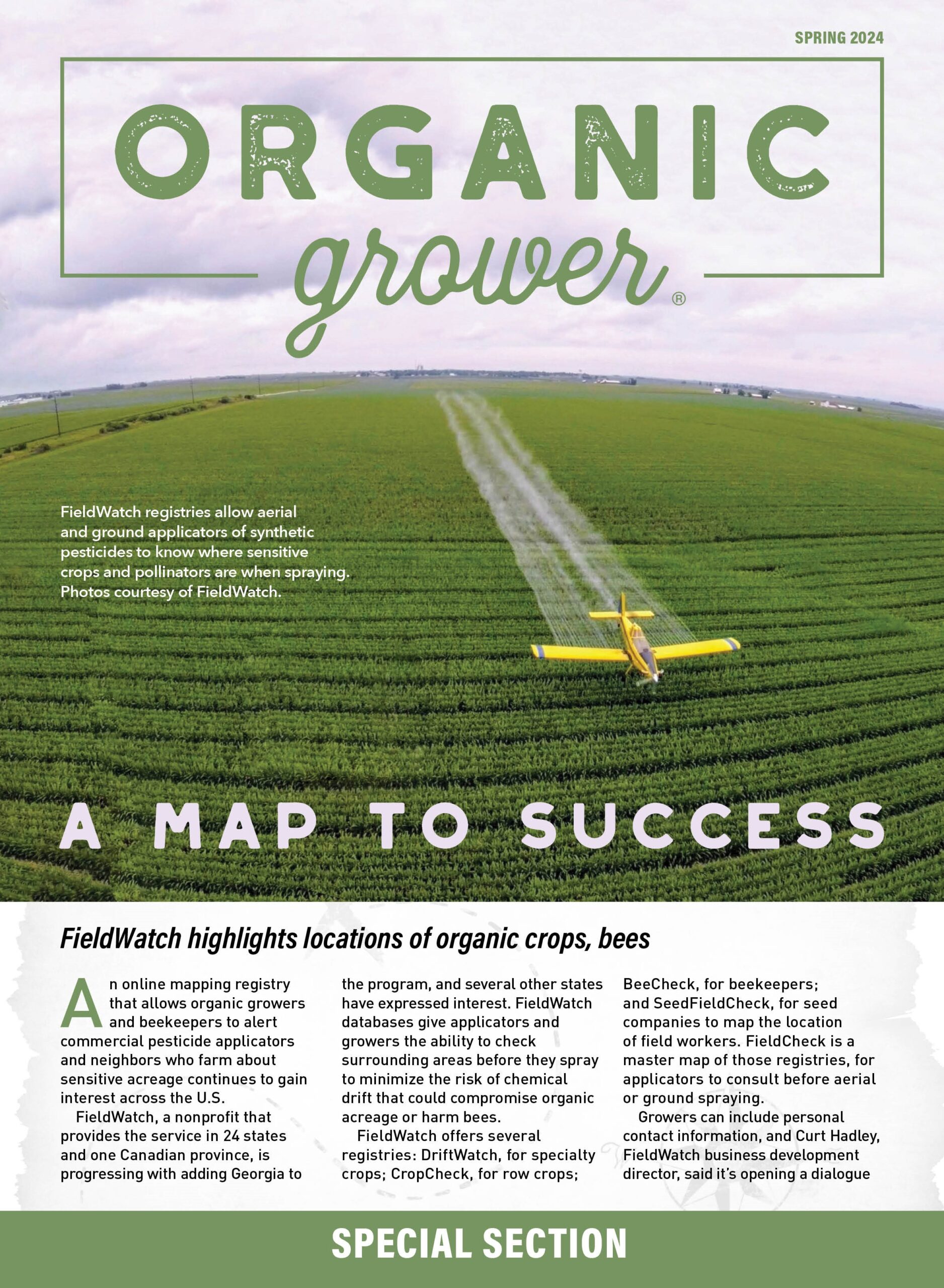May 8, 2024
Hybrid fungicide Regev field tested
Summit Agro has completed a series of 163 replicated field trials across the U.S. to evaluate the efficacy of Regev “hybrid” fungicide.
These field trials have included apples, apricots, blueberries, cherries, citrus, corn, cucumber, grape, nectarine, onion, peaches, peppers, pumpkin, squash, strawberry, tomato, watermelon and potatoes.
Regev is the first-ever hybrid fungicide, and contains a biological active ingredient, tea tree oil, with a synthetic triazole fungicide, difenoconazole, for broad spectrum disease control, minimal residues, and resistance management benefits. The combination of tea tree oil and difenoconazole provides preventive, curative, and anti-sporulant activity against plant pathogens due to Regev’s multiple modes of action.

“The results have been impressive with disease control and yield benefits better than most other straight biological products and equal to standard fungicides,” Dr. Eric Tedford, Summit Agro field research manager who oversaw the tests, said in a news release. “This is because tea tree oil contains 8 terpene hydrocarbons that impart various modes of activity against pathogens which include bacteria.”
Summit Agro distributes Regev and other products from Israel-based STK Bio-Ag Technologies in the U.S.
“Most fungicides have no activity against bacterial pathogens, so with Regev, growers are protecting their crop from both fungal and bacterial enemies in one shot.”
To validate the contribution of tea tree oil to this mixture and demonstrate that difenoconazole alone isn’t providing all the control, Timorex ACT (an STK Bio-Ag Technologies product containing only tea tree oil) was included in several of the trials at rates that deliver the same amount of tea tree oil as in Regev. These trials validated that tea tree oil alone is contributing substantially to disease control.
In one sugar beet demonstration trial, Regev was applied on one half of the field and another broad-spectrum fungicide with difenoconazole that’s marketed in the U.S. was applied on the other half. Cercospora leaf spot control was about the same on both sides. However, there was a visual line down the middle of the field at the end of the season because bacterial leaf spot came in heavy. The visual difference was due to the side of the field with Regev being healthy and the side heavily infected with bacterial leaf spot. The percent sugar on the Regev side was 15.6% vs 14.8% on the other side.
Most fungicides on the market are either FRAC group 3, 7, or 11, or 2 or 3-way combinations thereof. Tea tree oil has been classified by the Fungicide Resistance Action Committee (FRAC) as a BM01 grouping. This is a new and different resistance grouping that has a low resistance risk.
“We knew from previous experience that tea tree oil by itself has a powerful fungicidal effect, but what we have learned is that the combination of tea tree oil with difenoconazole is highly synergistic, resulting in a vast improvement in resistance management and performance,” Moshe Reuveni, chief scientist of STK Bio-Ag Technologies and inventor of Regev, said in the release.
Regev is an easy bridge for growers to experience the benefits of biological content and is used in the same way as synthetic pesticides, said Yair Nativ, STK Bio-Ag Technologies vice president of global sales.
“With Regev there’s no change to the growers’ crop protection program, no mixing, no having to learn any complicated biology,” Nativ said. “Only with Regev, the grower cuts chemical residues by half, opening new export markets to countries, regions and food chains which have very strict residue limits. Regev is a win-win-win, for the grower, the consumer, and the environment.”
Regev is currently being used by growers in 14 countries around the world, including the U.S., nearly all of Latin America, East Asia, some European countries, Turkey and Israel.






